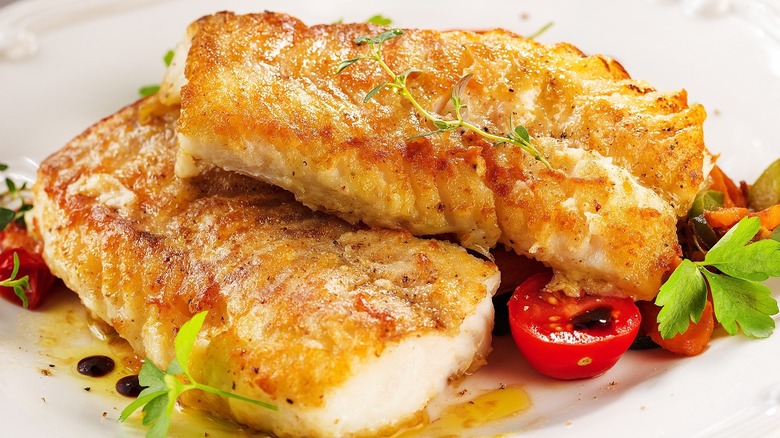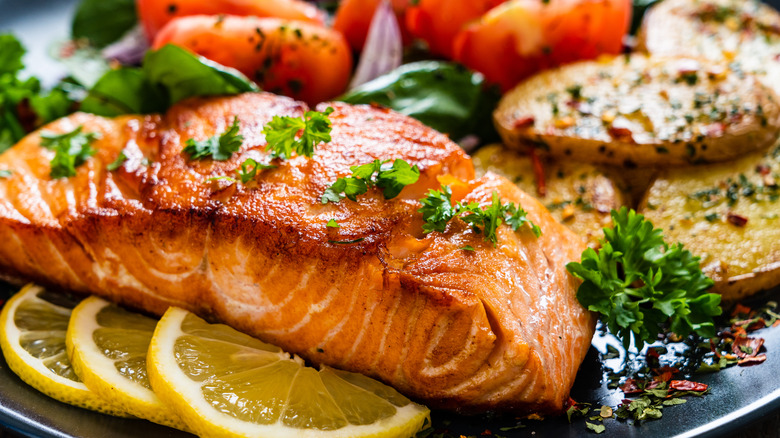The Practical Reason You Should Never Cook Flaky Fish On The Grill
Eating well-cooked fish sets you up for so many benefits. Science has it that fish is full of omega-3 fatty acids, vitamins B2 and D, calcium, iodine, phosphorus, and many other nutritional benefits. In fact, you should eat fish at least twice a week to conform to recommendations by The American Heart Association. However, when you return to the kitchen after visiting the local store for fish and other seafood, science takes a back seat, and your taste buds take over. You now want to make the most delicious fish that will make head chefs at Le Bernardin in NYC or Providence in LA, look like amateurs. Now, you're done seasoning with salt, pepper, your fav spices, and herbs. You've even set aside some oil and lemon just to ensure your cooked fish ends up with a nice finish.
But wait. Out of the many fish-cooking techniques, which one do you choose? Sautéing may be the easiest because you just need a heated skillet, some butter, or oil. You also have other options such as broiling, poaching, baking, or even roasting. Grilling is another option for certain types of fish, but cooking flaky fish on the grill should be avoided according to experts, even when using a non-stick spray.
Flaky fish is delicate and sticks to the grill grates
Some fish work well on hot grills and others don't, meaning that not all fish can be grilled successfully. "Dry and flaky fish are not good for grilling. They are very delicate and easily stick to the grill grates and fall apart," Joonas Jokiniemi, a former professional chef and the owner of a grilling site called Grill Smoke Love, tells HuffPost adding that "they usually end up being dry and tasteless when grilled." The same sentiments are expressed by other experts such as Hank Shaw, an award-winning cookbook author, and podcaster who explains that skinless fish is not good for grilling. "Fish is so delicate that you need the skin to hold things together ― if you lose that, the meat flakes apart and will fall through the grill grates," Shaw points out to HuffPost. According to Shaw, fish types such as bass, walleye, perch, and other freshwater ones are the most susceptible.
But all is not lost. You can still grill fish as long as the skin is still intact, and as Shaw says, you should not flip it. You can look for a fish that has an ardent texture such as salmon, swordfish, or tuna. To increase your chances of success, coat the grill rack with non-stick spray and start skin-side down.

